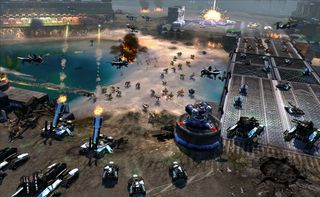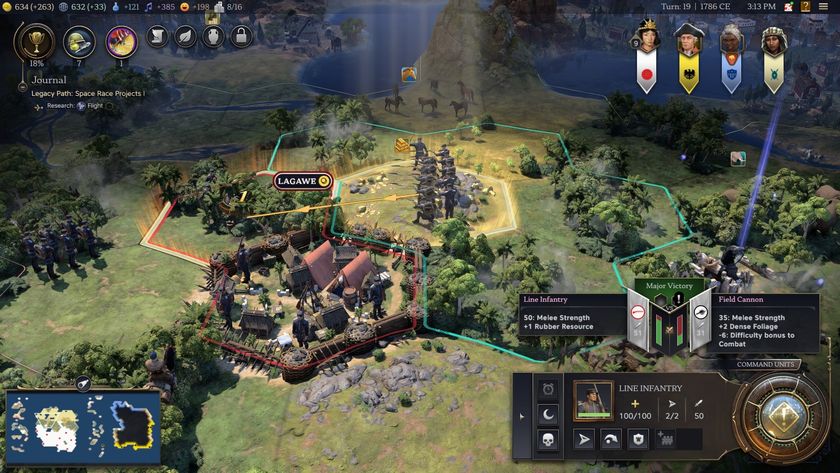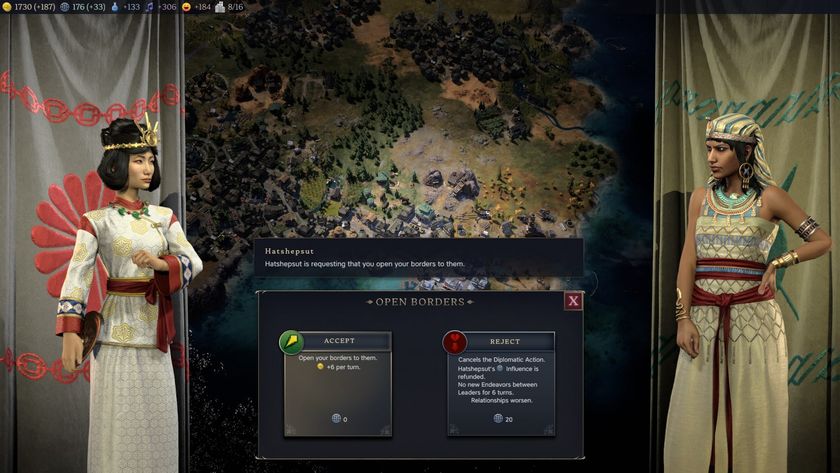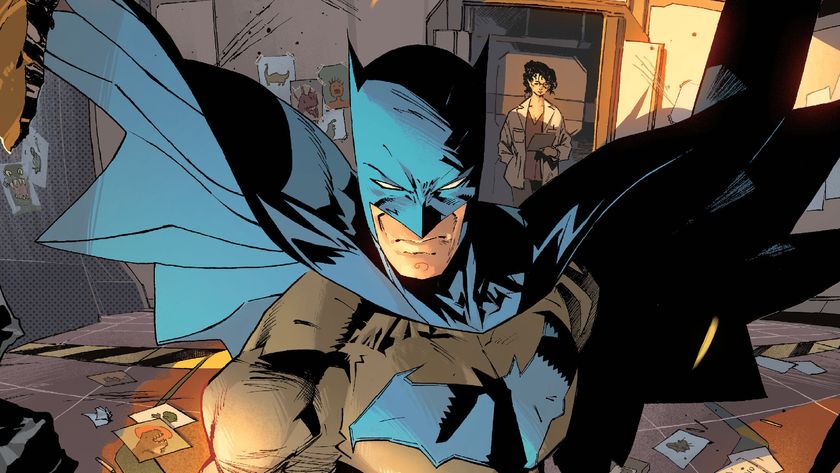What MOBAs, MMOs, and fighting games all have in common
Now is not the time for development studios to venture into the MOBA market. Yes, League of Legends is the most popular video game in the world. Yes, Dota 2 is consistently the most-played game on Steam. Yes, the free-to-play model provides massive dividends when implemented smartly. But the leaders of the genre have already been established, and no knock-off can sustain itself the way LoL and Dota 2 have. It's a lesson that other genres of game development had to learn the hard way in the years leading up to today: good luck unseating the market leader.

CVG News reported the latest on the copycat MOBA scene: Trion Worlds' End of Nations is officially on hold, a stall which--who are we kidding--will be indefinite. I've seen this before, having played ill-fated games like Warhammer Online: Wrath of Heroes and Rise of Immortals: Battle for Graxia that are now dead and gone forever. And there's a fundamental problem that upcoming MOBAs have to face: if you're trying to be like League or Dota, why would anyone choose you over them? Sins of a Dark Age, Infinite Crisis, Prime World, Nosgoth, Dawngate, and Strife are all competing for the same slot in MOBA gamers' attention, not realizing that those gamers are already well occupied by their MOBA of choice and have no intention of taking a chance on something new.
I exclude Smite and Heroes of the Storm from that list for one reason: they at least try to do things differently. Smite's third-person camera literally gives you a fresh perspective on the action, and HotS' emphasis on team-fighting and secondary objectives dares to break the three-lane formula. Though they both bear more than a passing resemblance to the competition, there's an effort being made to set themselves apart.

Contrast this with Dawngate and Strife, which look interchangeable but lack the production value to compete with League's cartoony style. Dawngate's UI is a carbon copy of LoL's, right down to the plus sign for leveling up abilities. Strife's splash art makes the heroes look like scraps from Riot Games' cutting room floor. I have nothing against the studios making these games, but they seem to expect success by mimicking the frontrunner, which has already been proven to be wholly ineffective.
On our most recent Strife preview, GR community member extraordinaire n00b noted that "We're living in the '90s, except with MOBAs instead of fighting games." Truer words were never spoken; after Street Fighter 2 and Mortal Kombat blew up, countless imitators put their bid in for an audience that could care less about similar-looking games. The same thing happened in the 2000s with World of Warcraft, when MMO studios fell all over themselves in an attempt to duplicate Blizzard's moneymaker.

The alternatives no doubt had some innovative ideas, and it's OK to enjoy less popular games. Plus, not every studio endeavors to become the next industry leader--sometimes, simply turning a profit is enough to justify a game's existence (though no gamer ever wants to hear this). The point is, these impersonators could never, ever match the level of success as their inspiration, and to think otherwise is to delude yourself.
There's room for more than one MOBA game. In this instance, "more than one" means two or three, tops. People who don't care about MOBAs wouldn't start if End of Nations came out, and LoL and Dota players wouldn't rush to learn about and invest in a game with less polish than their current favorite. Gamers seem to be the ones most in touch with this harsh reality: If you don't have the same clout and boundless resources as Riot Games, Valve, or Blizzard, then you will not make your big break by aping their games.
Sign up to the 12DOVE Newsletter
Weekly digests, tales from the communities you love, and more
Lucas Sullivan is the former US Managing Editor of 12DOVE. Lucas spent seven years working for GR, starting as an Associate Editor in 2012 before climbing the ranks. He left us in 2019 to pursue a career path on the other side of the fence, joining 2K Games as a Global Content Manager. Lucas doesn't get to write about games like Borderlands and Mafia anymore, but he does get to help make and market them.
Most Popular








